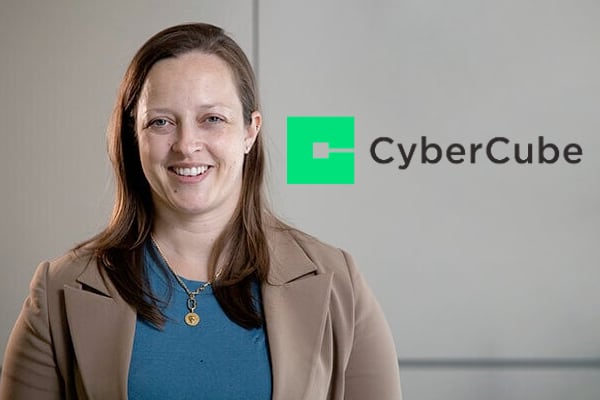
Just about every aspect of “normal” life has changed since the COVID-19 pandemic began.Many people have struggled with missing family holidays, mental health, and any number of other ways the coronavirus has impacted their lives.Fortunately, there has been some financial relief.
Stimulus checks aside, the federal student loan and interest suspension put in place has granted borrowers generous grace-period extensions on their loans.With 0% interest on federal student loans until September of 2021, this opens a window for borrowers to either a) get back on their financial feet, or b) make payments against their principal and lower their overall balance.The student loan relief program, enacted October 1, 2020, has been extended twice since its inception, and borrowers have been given eleven months of interest-free time to work on repaying their student loans, but it’s not going to last forever.
Additionally, President Biden has proposed forgiving $10,000 in student loan debt--something that would completely erase student loan debt for fifteen million borrowers and reduce overall balances for millions more.No executive action has been taken on Biden’s part yet, but his fellow democrats, including Senate Majority Leader Chuck Schumer of New York and Sen.Elizabeth Warren of Massachusetts, are urging him to forgive $50,000 in debt for all borrowers--an effort that would cost an estimated $650 billion.
Biden has made no comment on the proposed $50,000 in loan forgiveness.Unfortunately, this student loan relief doesn’t extend to privately held loans, FFELP Loans, or Perkins Loans because they are not held by the government.It only applies to loans like Direct Subsidized Loans or Direct Unsubsidized Loans which are held by the U.S.
Department of Education.So, for anyone with more than $10,000 in federally held loans, or anyone with student loans not covered by the loan relief program, debt is an active part of your lives.Here are four tips you can use now to help you deal with your debt now.
1.Track your finances Accountability is the best way to stay on top of your finances.If you don’t know where you’re spending, you won’t be able to correctly judge where you can save precious dollars that you can put towards paying off your debt.
Usually, your personal banks will track your expenditures to an extent, listing the grocery stores, restaurants, subscriptions, and online shopping centers you frequent with however much you spent.This can be super helpful, but it doesn’t really help you get hands-on with your finances so that you can take control of your debt.Rather than just relying on online banking to track your finances, you should invest in a manual expenditure tracker.
They’re the best way for you to be as knowledgeable about your finances as you can be.By manually tracking your expenses, you can see exactly where your money is going every month instead of guesstimating totals that somehow never add up.There are several great ways to track your expenses down to the penny.
From old-fashioned paper-and-pen checkbooks and expenditure journals to convenient personal finance apps and websites, the options are endless.Within a few weeks of tracking your expenses in this manner, you’ll start to notice patterns in your spending and see ways that you can cut.Do you eat out multiple times a week? Do you have a subscription or membership that you can do without? Do you really need hard copies of all seventeen seasons of Grey’s Anatomy? Figure out what you need and what you can do without, and you’ll start to make major dents in your debt.
2.Set a budget Once you know where your money is going, set a budget.No, really.
This is an obvious “no-duh” answer to most people, but it’s often an overlooked aspect to financial planning with student loans.People start out with aspirations of cancelling out all their debt within two to five years, but many still end up struggling ten, fifteen, or twenty years down the road with the same debt because they either failed to set achievable goals or failed to set specific goals altogether.You need to have a clearly defined budget that lets you afford all the things you need while helping you save to pay off your student loans.
It may seem easy to just try to avoid certain leisure purchases once you know you’re making them, but it almost never works out that easily.Over the course of a week, month, or year, people will forget how many times they stopped for gas, bought that last-minute “wake-up” coffee on their way to work, or ordered takeout because they didn’t feel like cooking.Cut to the end of the month, and there’s not enough money leftover to put a surplus towards loan repayments.
When you have a set budget to stick to — and achievable goals — it becomes much easier to stay on track and know what money you can spend on certain items.Know what you need now, and sacrifice some of the things you want now so that you can enjoy them debt-free later.3.
Refinance your private student loans If you have high interest rates, now is a perfect time to refinance your medical school loans.Interest rates are at all-time-lows, making this a great option for anyone with privately held loans.In refinancing your loans, you’re able to take all the loans you have, group them together into a single lump-sum, and then borrow that same amount from another lender with a lower interest rate.
By refinancing your loans, you both extend your loan period since you’re taking out a new loan and you avoid extending your original loan period too much since you’re able to repay the original debt with money from the new loan.This can save you from having to deal with thousands of dollars in interest debt from your original lender.Refinancing also lowers both your monthly payments and interest rate because you’re technically starting fresh with the new lender.
4.Keep paying off you debt (even if you have no interest right now!) Federally-held student loan interest rates have (literally) never been lower, so making payments against your debt is a great idea if you have the extra money to do so.Because you don’t have any interest right now, you have the unprecedented opportunity to make drastic changes to reduce the principal you owe, rather than just keeping up with the additional interest payments.
And even if you don’t qualify for 0% interest, any progress is good progress.Just keep working at it little by little every day, saving money and cutting expenses where you can, and soon your student loan days will be far in the past.
Publisher: LeverageRx








